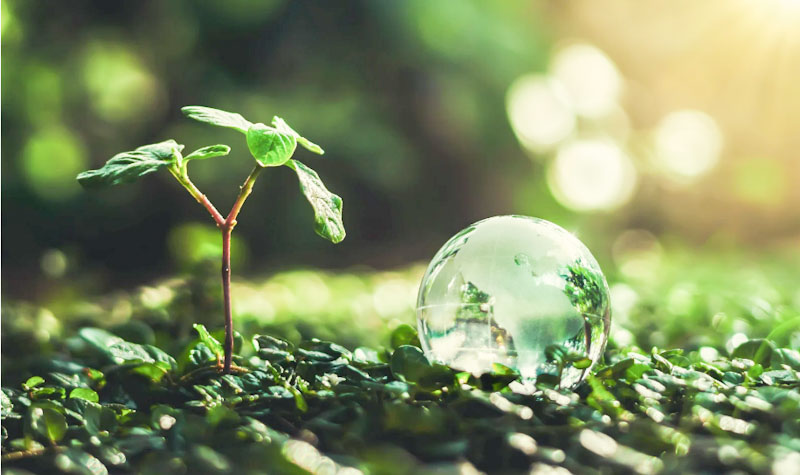
Biodegradable Bags - Not the only eco-solution
Over the years, we have received many inquiries regarding biodegradable plastic bags and why we are not supplying this range of products despite being a sustainable supplier. Below are the reasons why we are offering bags made from recycled resins mostly instead of biodegradable ones:
Interference in Recycling Process – Oxo-biodegradable Ban in EU
The European Union and some other nations have banned oxo-biodegradable products due to potential interference during recycling and composting. Singapore Green Labelling Scheme (SGLS) is also no longer recognising Oxo-biodegradable plastic products as a valid category in 2024, following the EU standards.
According to a NEA study, “oxo-degradable bags could interfere with the recycling process when mixed with conventional plastics.” Oxo-biodegradable plastics are not suitable for recycling at scale, nor are they compatible with composting processes. On the other hand, trash bags made from recycled resins do not pose such a problem.
Waste is Incinerated in Singapore, Not Degraded in Landfills
As Singapore incinerates most of its waste, the benefits of biodegradable plastic bags are not as evident. Biodegradable plastic wastes make a difference to the environment only when they are buried in landfills, which is usually not the case in Singapore. Moreover, certain conditions are required before the plastic bags can degrade fully, which often does not happen in real life.
Many companies wish to go green by opting for biodegradable bags, but have they questioned whether there are real tangible benefits to using biodegradable bags in Singapore’s context?
Biodegradable Bags Do Not Degrade Completely
Oxo-biodegradable bags are often marketed as eco-friendly, but they don’t fully biodegrade. Consumers may feel a false sense of justification when using bags labeled as biodegradable. In the Singapore context, it might not make a viable difference, as explained in earlier points.
We agree with what Grace Fu, Minister for Sustainability and the Environment of Singapore, highlighted in her Facebook post on March 9, 2023, which in essence summarizes our stand.
Due to the above reasons, Allswell Polythene does not supply biodegradable bags. We encourage consumers to opt for other materials such as bags made from recycled resins.
Why Bags Made from Recycled Plastic Resin:
Reduction in Carbon Footprint
Recycled plastic requires significantly less energy to produce compared to virgin plastic. This leads to lower greenhouse gas emissions, making recycled plastic a more environmentally friendly option
Circular Economy
Using recycled plastic supports the principles of a circular economy by keeping materials in use for as long as possible and reducing waste. This approach promotes the recycling and reusing of materials, which can help create a more sustainable economic system. By adopting recycled plastic, businesses contribute to reducing landfill waste and lowering environmental pollution.
Cost-Effective and Long-Lasting
Recycled resin bags last longer and are more durable than oxo-biodegradable bags, which can degrade prematurely. This makes them more economical for both businesses and consumers.
How About Non-Plastic Alternatives?
The Big Read article about reducing single-use plastics and disposables published by Today Online provides a practical perspective on this issue. According to the environmentalist interviewed, alternative materials such as paper and woven cloth actually leave a larger carbon footprint when considering the life cycle analysis. Other materials, when incinerated, might not even burn as cleanly as plastic.
Defining a Sustainable Supplier
We believe in a holistic way of viewing sustainability, not just through the provision of eco-friendly products or narrowing down to the precise material used for the end product. It is also about how the company is run and how we manage our daily operations through the Environmental, Social & Governance (ESG) framework. From a Life Cycle Assessment point of view, one should also consider the amount of carbon emission produced from cradle to gate.
At Allswell Polythene, we aim to lower our carbon footprint through efficient transportation of products. Through efficient planning of routes and operations, we achieved a 13% decrease in both our carbon emissions and energy efficiency in the past year. From lowering carbon emissions through delivery fleet management to promoting workplace equity and upholding ethical values in operations, Allswell Polythene strives to achieve sustainability holistically.
As part of our commitment to society, our people, and the environment, Allswell Polythene completes a thorough assessment of its business sustainability practices through EcoVadis, the global standard for business sustainability ratings. The EcoVadis assessment includes 21 sustainability criteria across four core themes: Environment, Labor & Human Rights, Ethics, and Sustainable Procurement. In our latest rating, completed in September 2023, we earned a Gold Medal and scored 76, placing Allswell Polythene in the top 5% globally for business sustainability ratings. We are proud to be one of the only polythene packaging suppliers in Singapore to have achieved the top sustainability rating. This is a testament to our commitment to be a sustainable garbage bag supplier in Singapore.
Last Thoughts
Ultimately, regardless of the supply being biodegradable, recycled, or compostable, we encourage consumers to use every resource wisely. Visit the following links to find out more about our range of recycled trash bags and plastic carrier bags.
